
A Tailored Metaprograming Approach to Pre-Mentoring Preparation — How Does It Work?
Info Setronica | March 17th, 2024
Imagine offering mentoring services to your team, where effectiveness is not just a goal but a guarantee. How do you achieve this? By understanding the right motivation and selecting the perfect mentor. But how do you ensure this compatibility?
Selecting a mentor for individual work is straightforward. But what about an entire team of software developers? This is where our unique expertise comes in. Rather than focusing on client projects, we’re delving into our know-how, applying it to mentoring services for developers—both our own team and external clients.
The challenge
When a client approached us for Java mentoring for a team consisting of a project manager, a technical lead, a system analyst, and two back-end developers, we encountered the task of fine-tuning our mentoring strategy to fit with their unique team composition.
Leveraging the JobEQ (iWAM) assessment tool, we explored individuals’ metaprograms—the mental processes influencing behavior and decision-making. This analysis guides personal and professional growth, strengthens team dynamics, and boosts organizational performance. Our certified specialist conducts these assessments, enabling us to offer comprehensive team testing before tailoring mentoring plans.
To ensure effective mentoring, we carefully analyze team metaprograms before starting. This evaluation allows us to develop a customized mentoring plan that matches the team’s individual characteristics. Through careful selection of the right mentor and application of the most appropriate mentoring style, we increase the chances of successful training and team satisfaction. Our personalized approach enables us to carry out these assessments effectively.
The Process
Choosing Representative Metaprograms
In the JobEQ methodology there are 48 metaprograms. We selected key metaprograms crucial for effective learning:
-
Sole responsibility: Emphasizing individual accountability without undermining teamwork.
-
External reference: Enhancing acceptance of criticism and external expertise.
-
Goal orientation: Maintaining focus and self-motivation while acknowledging challenges.
-
Achievement: Recognizing diverse motivational factors beyond traditional rewards.
-
Alternatives: Motivating through flexibility and diverse options.
-
Future: Envisioning transformations and future success.
-
Initiation: Promoting proactivity and prompt action.
Testing the team
By evaluating team members, we developed a comprehensive profile guiding our mentoring approach. This profile identifies the ideal mentor, stages for program mastery, and effective mentoring methods for each mentee. The assessment reveals meta-program distributions, enabling the most impactful mentoring strategy.
Team Overview
After assessing each team member, we obtained a detailed metaprogram chart.
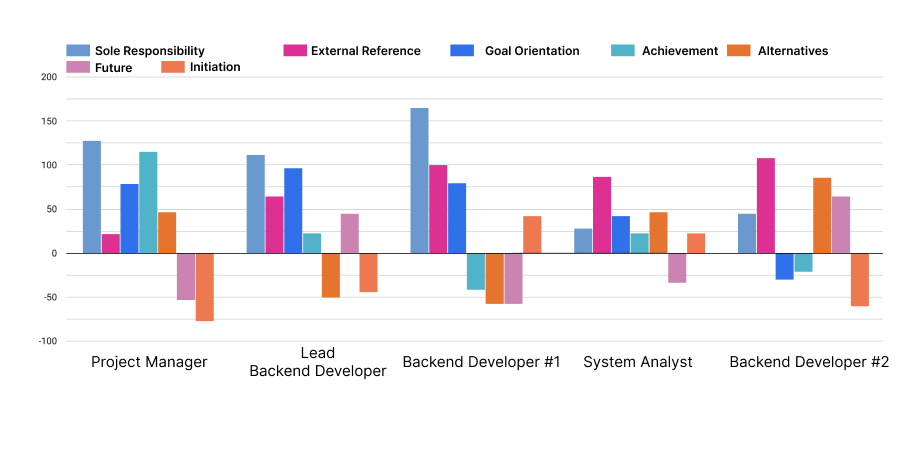
Let’s explore its implications on the mentoring process:
1. Sole Responsibility
Sole responsibility emphasizes individual accountability for one’s actions and outcomes, not the team’s. It does not imply poor teamwork but rather a preference for clearly defined roles and responsibilities within the team. Individuals with this trait value personal ownership and autonomy. They desire clarity in responsibilities and boundaries, ensuring that each team member understands their specific tasks. In the context of mentoring, they seek a clear understanding of the mentor’s role and responsibilities and prefer to maintain distinct lines of accountability.
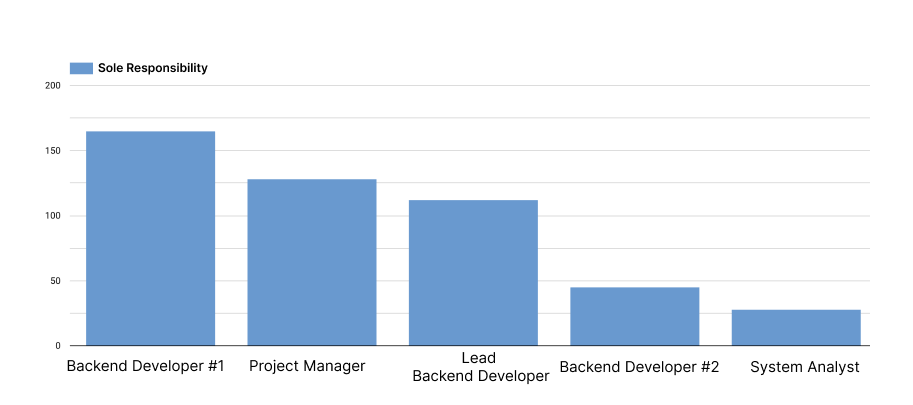
2. External Reference
External references enhance the acceptance of criticism. A higher external reference facilitates the consideration of others’ opinions. Consider the graph: if a mentor proposes an untried approach, the lead and manager will be more skeptical than other team members. The developers on the left, with lower external references, will readily accept information from an external expert.
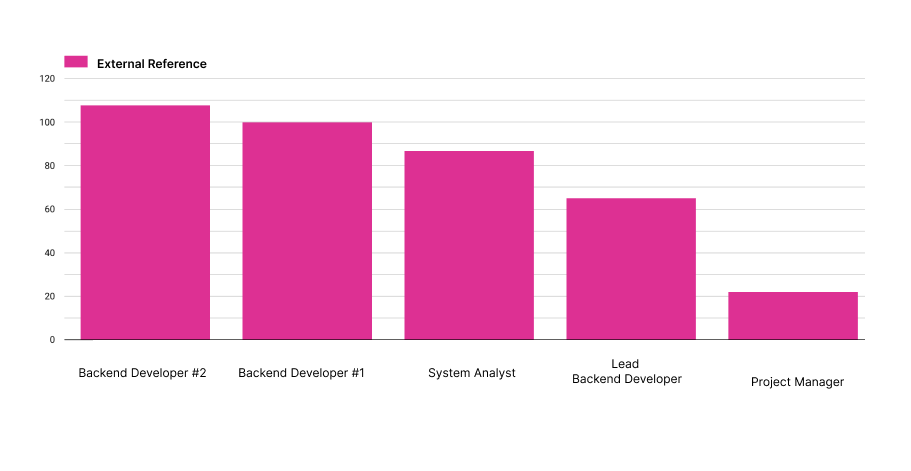
3. Goal Orientation
Goal orientation aids in maintaining focus and self-motivation. However, excessive goal orientation can hinder recognition of issues due to a tendency to overlook the negative. Our lead’s ambitious goals necessitate proving team issues to him while demonstrating how his example can motivate others to achieve the best. Conversely, a developer with negative goal orientation requires motivation based on avoiding problems through training and technology, fostering enthusiasm for their work.
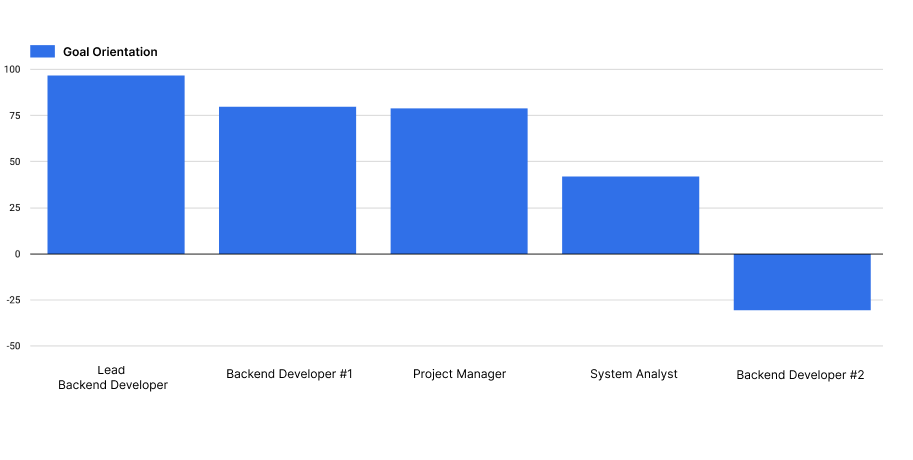
4. Achievement
Achievement-based motivation is a common choice for mentors. However, it’s important to understand that this approach may not be effective for everyone. While the promise of a reward may motivate some individuals, it may not resonate with others. Different team members have different motivations, and it’s essential to tailor the approach accordingly.
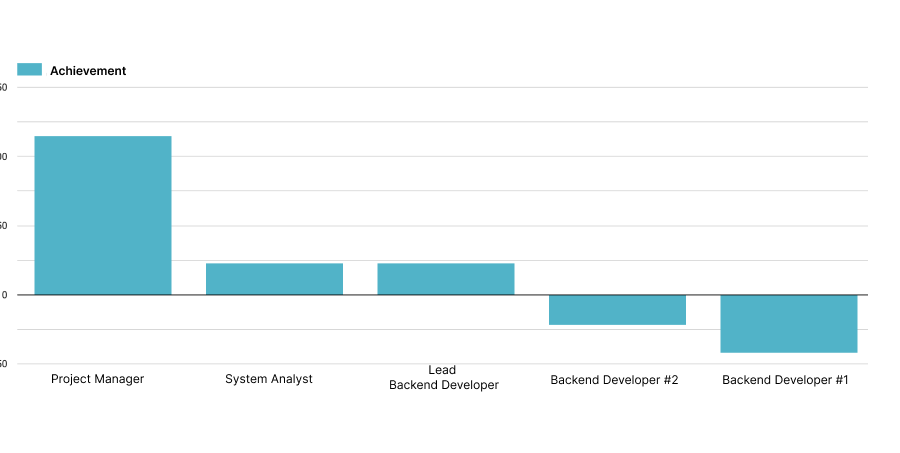
5. Alternatives
By providing alternatives, you can motivate individuals by presenting them with a variety of options. Flexible students are inclined to seek out new opportunities and dislike mentors who limit their choices. They can generate countless solutions, making it challenging for them to settle on a final decision. In our example, Backend Developer #2 exemplifies this. Without guidance, they may encounter tasks with multiple solutions, potentially leading to missed deadlines due to their inability to select the optimal approach. In contrast, the lead and Backend Developer #1 lack the ability to generate options and recognize opportunities. As a result, they may overlook the benefits of mentoring, rendering it ineffective in their case.
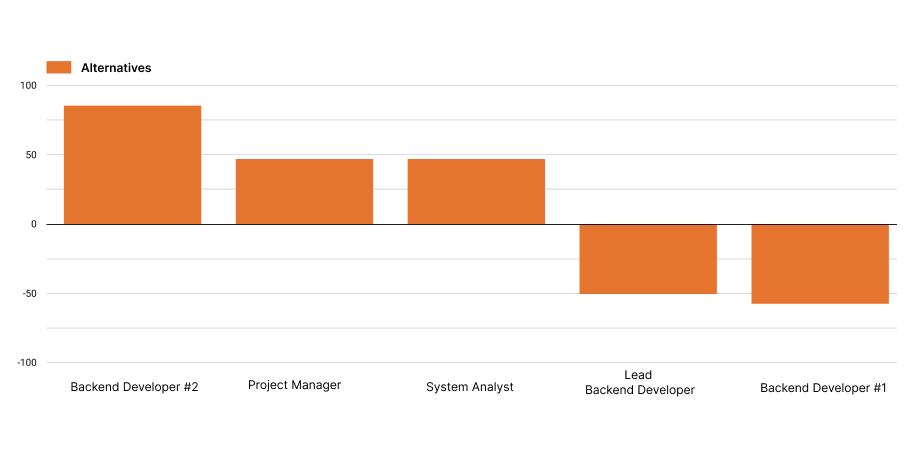
6. Future
The future pertains to metaprograms that enable individuals to envision the future and its potential transformations through the knowledge gained from mentoring. However, in our example, this approach is not optimal. The team members struggle to imagine the future. Alternative combinations and time frames should be explored. For instance, if the past holds significance for them (as indicated in the second diagram), our training should emphasize summarizing their prior experiences, utilizing their existing knowledge, and highlighting the value of avoiding past errors.
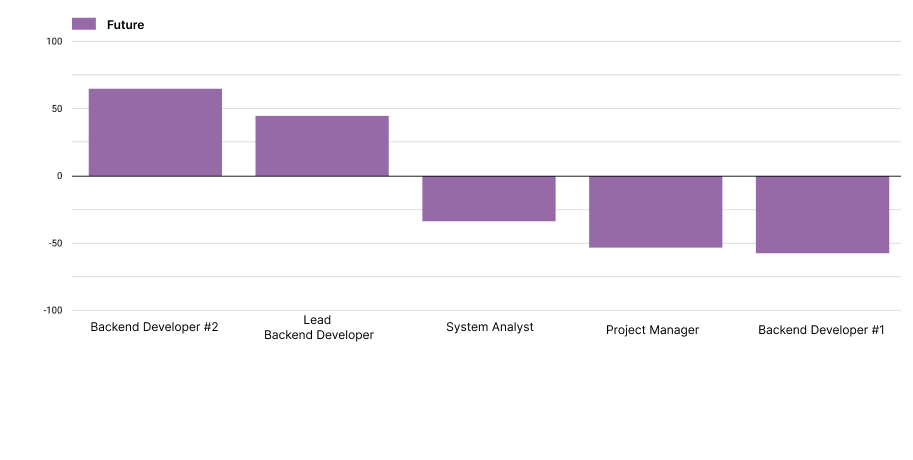
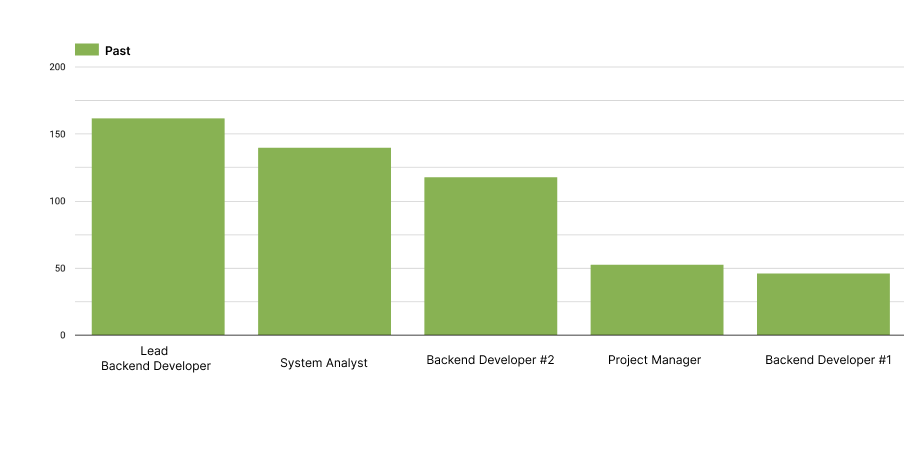
7. Initiation
Self-starters are proactive, self-organizing, and quick to start tasks without anticipating all potential risks. They act promptly, becoming demotivated when faced with delays. During mentoring sessions, they actively ask questions, a crucial aspect of the process. However, in this case, the team lacks these traits. The manager attempts to address all risks, which can hinder rapid iteration progress within the one-month timeframe. The lead fails to inspire others by example, opting for a cautious approach. He requires thorough understanding of the mentor’s guidance, but time is not allocated for this. To improve, the lead and manager should be briefed in advance. A separate call should be scheduled to demonstrate the program, explain its functions, and provide time for analysis, effectively extending the training period beyond the designated one-month timeframe.
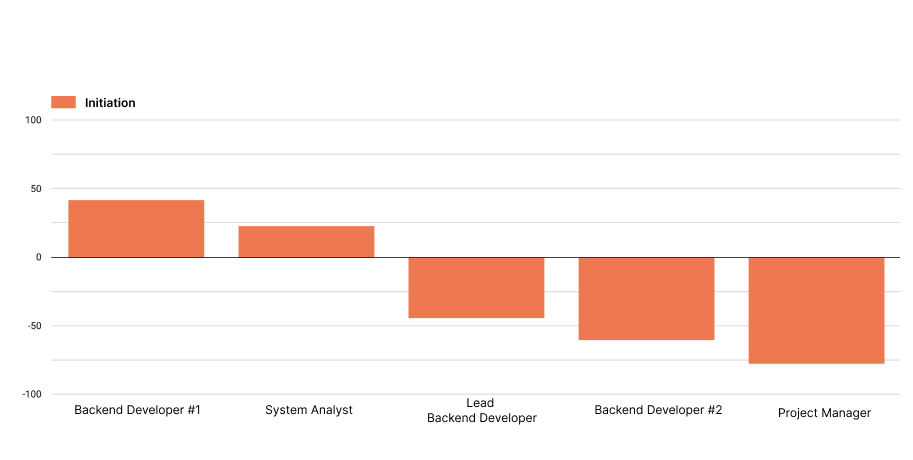
Results
Through meticulous analysis, we selected the optimal mentor and approach for the team. A Technical Mentor, well-versed in expert-based mentoring, ensures clear communication and accountability.
They possess a strong sense of self-assurance and will be persuasive in proposing approaches and methods to the team. They are prepared to address any objections from the team manager, basing their suggestions on facts. This ensures clear communication with the entire team. Importantly, the Technical Mentor has a clear understanding of each individual’s responsibilities in their collaborative work and can articulate the areas of responsibility for each team member.
All our mentors also undergo JobEQ testing. We seek high scores in the “Concept” metaprogram — this enables our expert to convey the essence of the work effectively. Additionally, a high score in the “Goal Orientation” metaprogram is sought to align everyone in the pursuit of results. Furthermore, since the client team demonstrates low “Initiation” and moderate “Alternatives,” we anticipate that during training, initiative should originate from our mentor. This aspect is also given special attention.
By analyzing the team’s tendencies, we have selected a mentor who will optimize their performance. This approach minimizes errors, saves time, and enhances the mentoring process’s efficiency.
Let’s start building something great together!
We offer JobEQ testing as a standalone service in addition to our mentoring services. For further information, please contact our expert and certified coach, Alla Dortman.

Related
Recent Posts
- How to Efficiently Scale Your Startup’s Tech Stack for Maximum Growth
- Shine in Your Interview: 3 Dos and Don’ts to Prove Your Competence with Confidence
- Elevator Pitch: How to “Sell” Yourself in One Minute
- 9 Best Places to Find Free Datasets for Your Next Project
- 9 Key Measures to Protect Digital Assets and Ensure Data Integrity
Categories
SETRONICA
Setronica is a software engineering company that provides a wide range of services, from software products to core business applications. We offer consulting, development, testing, infrastructure support, and cloud management services to enterprises. We apply the knowledge, skills, and Agile methodology of project management to integrate software development and business objectives effectively and efficiently.
